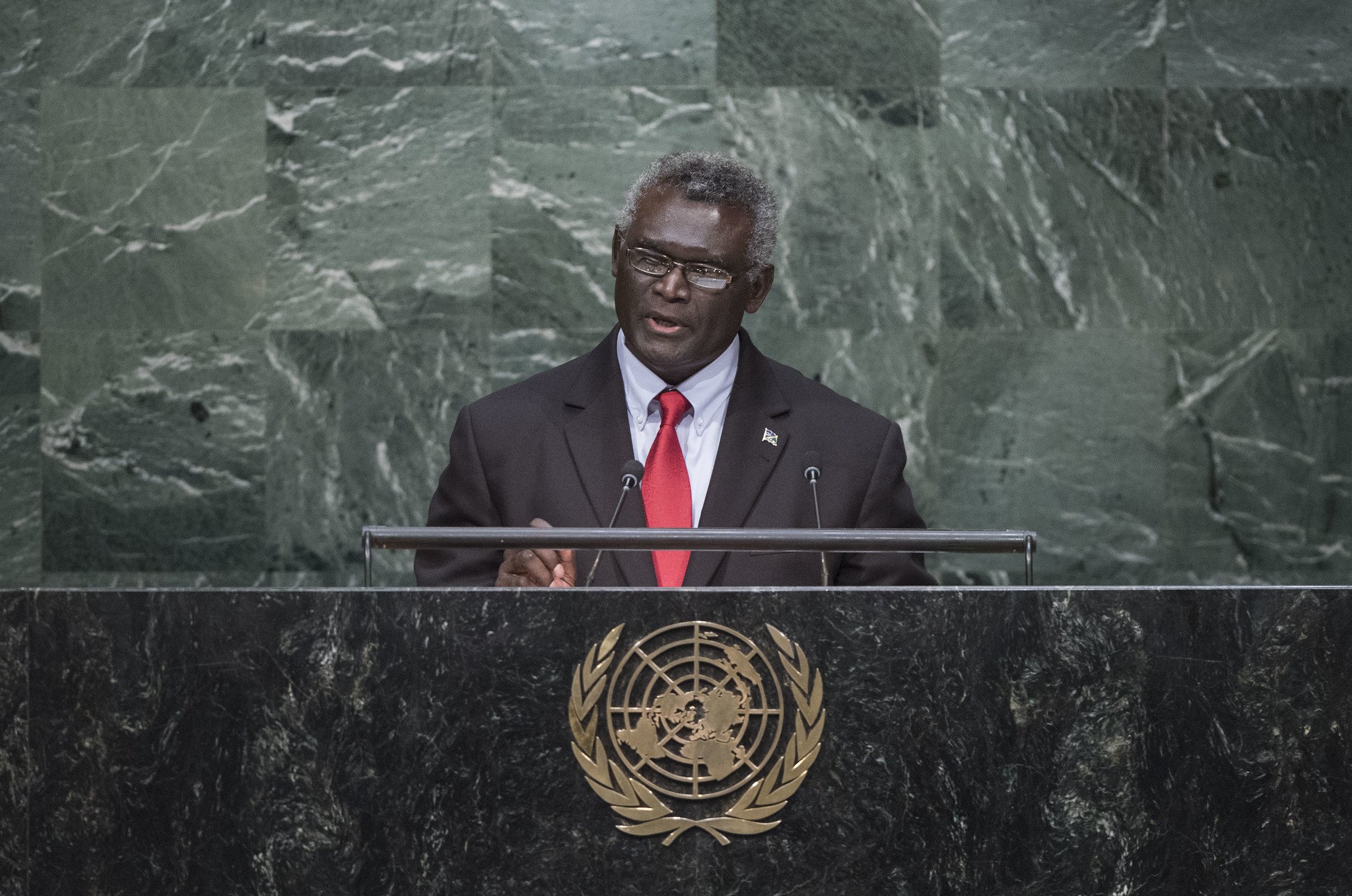The Prime Minister of the Solomon Islands Manasseh Sogavare told his nation’s parliament on Wednesday that either Australia, the U.S., or both, had threatened his country with “invasion” over a recently signed security agreement with China.
Sogavare has reiterated the agreement regards domestic concerns only, but a leak of the text made it onto social media and triggered a diplomatic invasion at least, from the two countries, to demand answers.
“We deplore the continual demonstration of lack of trust by the concerned parties, and tacit warning of military intervention in Solomon Islands if their national interest is undermined in Solomon Islands,” Prime Minister Sogavare told parliament. “In other words, we are threatened with invasion”.
“We are being treated as kindergarten students walking around with Colt .45s in our hands, and therefore we need to be supervised,” he added. “We are insulted”.
While “tacit warnings” and “in other words,” don’t add up to a military intervention against a poor, non-aligned nation, it’s no exaggeration to say that the level of rhetoric from the AUKUS allies has been unbelievable since the agreement was made with China in the third week of April.
On April 26th a delegation of some of the highest-ranking US officials in the Pacific made it to the Solomons for a “constructive and candid” meeting with Sogavare, which consisted of Kurt Campbell, the Indo-Pacific Coordinator at the National Security Council, and Daniel Kritenbrink, assistant secretary of state for East Asian and Pacific Affairs.
“Of course, we have respect for the Solomon Islands sovereignty, but we also wanted to let them know that if steps were taken to establish a de facto permanent military presence, power projection capabilities, or a military installation, then we would have significant concerns, and we would very naturally respond to those concerns,” Kritenbrink told reporters in the aftermath of the diplomatic scrum.
When asked to comment on Australian Prime Minister Scott Morrison’s comments that a base in the Solomons would be a “red line,” Kritenbrink said he didn’t feel he needed to add anything, and when pressed to rule out military intervention, Kritenbrink did not.
“Prepare for war”
This, in light of the fact that the US has lacked an ambassadorial presence for 29 years in the Solomons, and that 37 years must be wound back to find the last time a U.S. State Secretary visited any Pacific Island, is astonishing behavior for the self-proclaimed leader of the free world.
“After many years, the senior US officials suddenly are visiting a Pacific island country with great fanfare. We are curious whether they really care about the island country or have another agenda,” Chinese foreign ministry spokesman Wang Wenbin said at the time the agreement was made.
April 25th was Anzac Day, when Australia and New Zealand remember all those from Down Under who have died in all wars. PM Morrison’s defense minister thought this was a good time to bring up the issue of this small island chain and its agreement with China.
“The only way you can preserve peace is to prepare for war and be strong as a country. Not to be on bended knee and be weak,” Minister Dutton said, comparing the current era to the 1930s and saying that China was on a very “deliberate path” at the moment.
No one from either the US or Australia has outlined what will be done if China establishes some sort of military presence on the islands, or what would constitute the minimum definition, but one part of the agreement which reads that China may “make ship visits to, carry out logistical replenishment in, and have stopover and transition in Solomon Islands,” was noted by reporters as troubling according to AUKUS officials.
“Prime Minister Sogavare indicated that in the Solomon Islands’ view, the agreement they’ve concluded has solely domestic implications,” said Kritenbrink. “But we’ve made clear that there are potential regional security implications of the agreement not just for ourselves, but for allies and partners across the region”.
A warning is understandable; anything more is a violation of international law, and the so-called “rules-based international order” which the Wilsonian diplomats of the Biden Administration so love to bandy around.
Recently, Minnie Chan at SCMP reported that the current Indo-Pacific strategy for the U.S. is failing, as the Pentagon can’t find any allies who will offer to base its intermediate-range missile systems it has been building since 2019 in order to counter China over the vast geo-political gameboard of the Indo-Pacific. Even partners and allies hostile to China tend not to want to antagonize her due to the wealth of trading connections between China and countries like Japan.
Recently, a China hawk won the presidency of South Korea, and his advisors have suggested that missiles—even nuclear-tipped ones, would be welcomed on the Korean Peninsula under his presidency.
We Humbly Ask For Your Support—Follow the link here to see all the ways, monetary and non-monetary.



